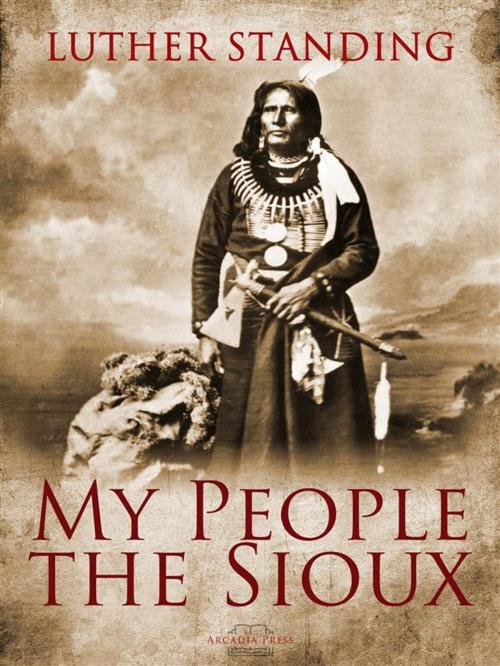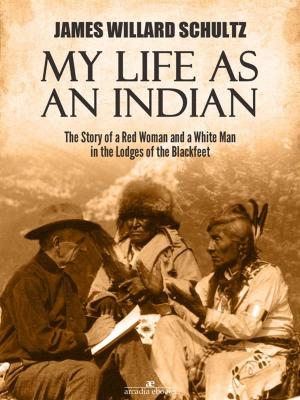My People The Sioux
Nonfiction, Social & Cultural Studies, Social Science, Cultural Studies, Customs & Traditions, Native American Studies, History, Americas, Native American| Author: | Luther Standing Bear | ISBN: | 9788827539972 |
| Publisher: | Arcadia Press | Publication: | December 23, 2017 |
| Imprint: | Language: | English |
| Author: | Luther Standing Bear |
| ISBN: | 9788827539972 |
| Publisher: | Arcadia Press |
| Publication: | December 23, 2017 |
| Imprint: | |
| Language: | English |
When it was first published in 1928, Luther Standing Bear's autobiographical account of his tribe and tribesmen was hailed by Van Wyck Brooks as “one of the most engaging and veracious we have ever had.” It remains a landmark in Indian literature, among the first books about Indians written from the Indian point of view by an Indian.
Luther Standing Bear (1868 – 1939) was an Oglala Lakota chief notable in American history as a Native American author, educator, philosopher, and actor of the twentieth century. Standing Bear fought to preserve Lakota heritage and sovereignty and was at the forefront of a Progressive movement to change government policy toward Native Americans.
Standing Bear was one of a small group of Lakota leaders of his generation, such as Gertrude Bonnin, and Charles Eastman, who were born and raised in the oral traditions of their culture, educated in white culture, and wrote significant historical accounts of their people and history in English. Luther’s experiences in early life, the Carlisle Indian Industrial School, Wild Westing with Buffalo Bill, and life on government reservations present a unique view of a Native American during the Progressive Era in American history. Standing Bear’s commentaries on Native American culture and wisdom educated the American public, deepened public awareness, and created popular support to change government policies toward Native American peoples. Luther Standing Bear helped create the popular twentieth-century image that Native American culture is holistic and respectful of nature; his classic commentaries appear in college-level reading lists in anthropology, literature, history, and philosophy, and constitute a legacy and treasury of Native American wisdom.
When it was first published in 1928, Luther Standing Bear's autobiographical account of his tribe and tribesmen was hailed by Van Wyck Brooks as “one of the most engaging and veracious we have ever had.” It remains a landmark in Indian literature, among the first books about Indians written from the Indian point of view by an Indian.
Luther Standing Bear (1868 – 1939) was an Oglala Lakota chief notable in American history as a Native American author, educator, philosopher, and actor of the twentieth century. Standing Bear fought to preserve Lakota heritage and sovereignty and was at the forefront of a Progressive movement to change government policy toward Native Americans.
Standing Bear was one of a small group of Lakota leaders of his generation, such as Gertrude Bonnin, and Charles Eastman, who were born and raised in the oral traditions of their culture, educated in white culture, and wrote significant historical accounts of their people and history in English. Luther’s experiences in early life, the Carlisle Indian Industrial School, Wild Westing with Buffalo Bill, and life on government reservations present a unique view of a Native American during the Progressive Era in American history. Standing Bear’s commentaries on Native American culture and wisdom educated the American public, deepened public awareness, and created popular support to change government policies toward Native American peoples. Luther Standing Bear helped create the popular twentieth-century image that Native American culture is holistic and respectful of nature; his classic commentaries appear in college-level reading lists in anthropology, literature, history, and philosophy, and constitute a legacy and treasury of Native American wisdom.















